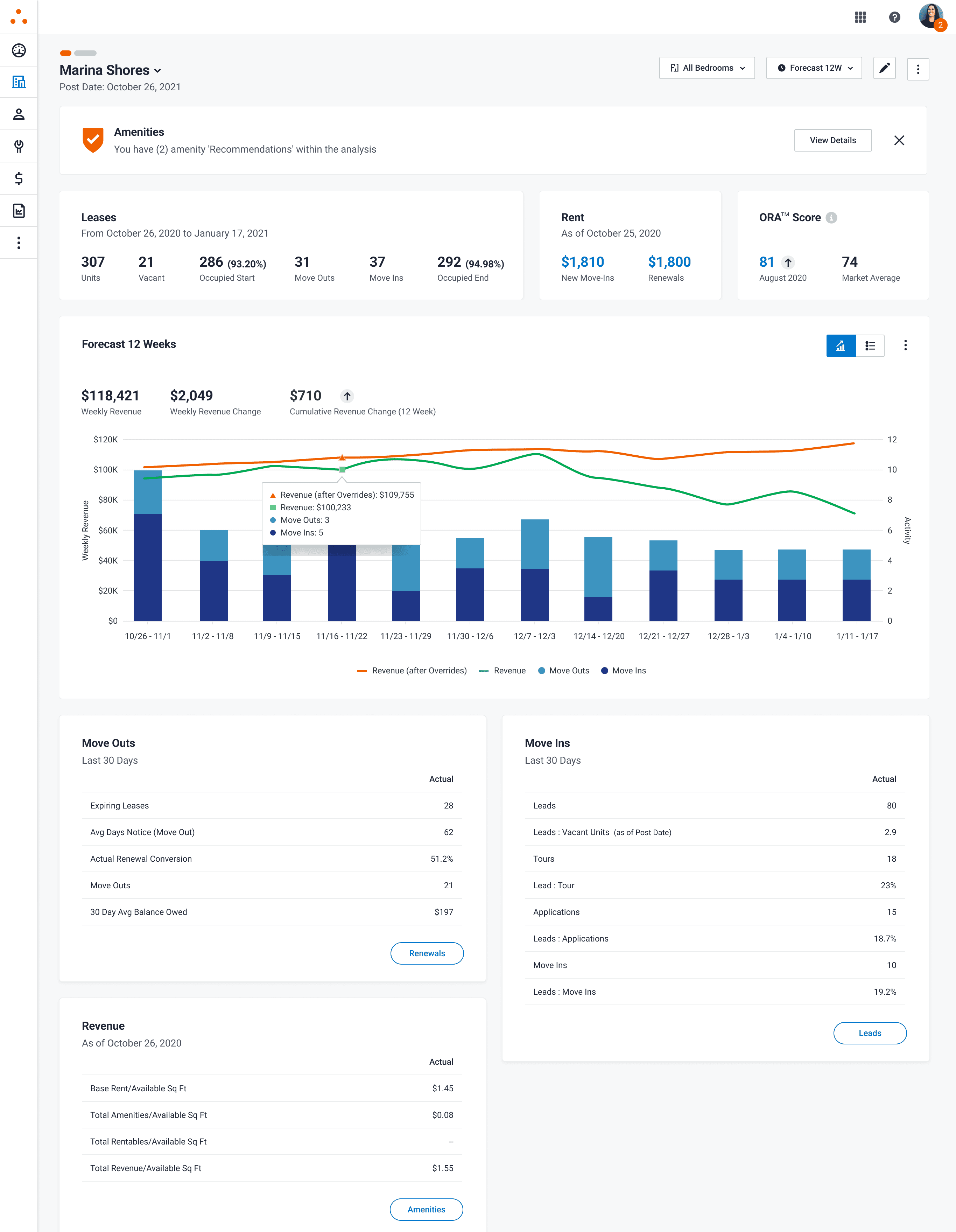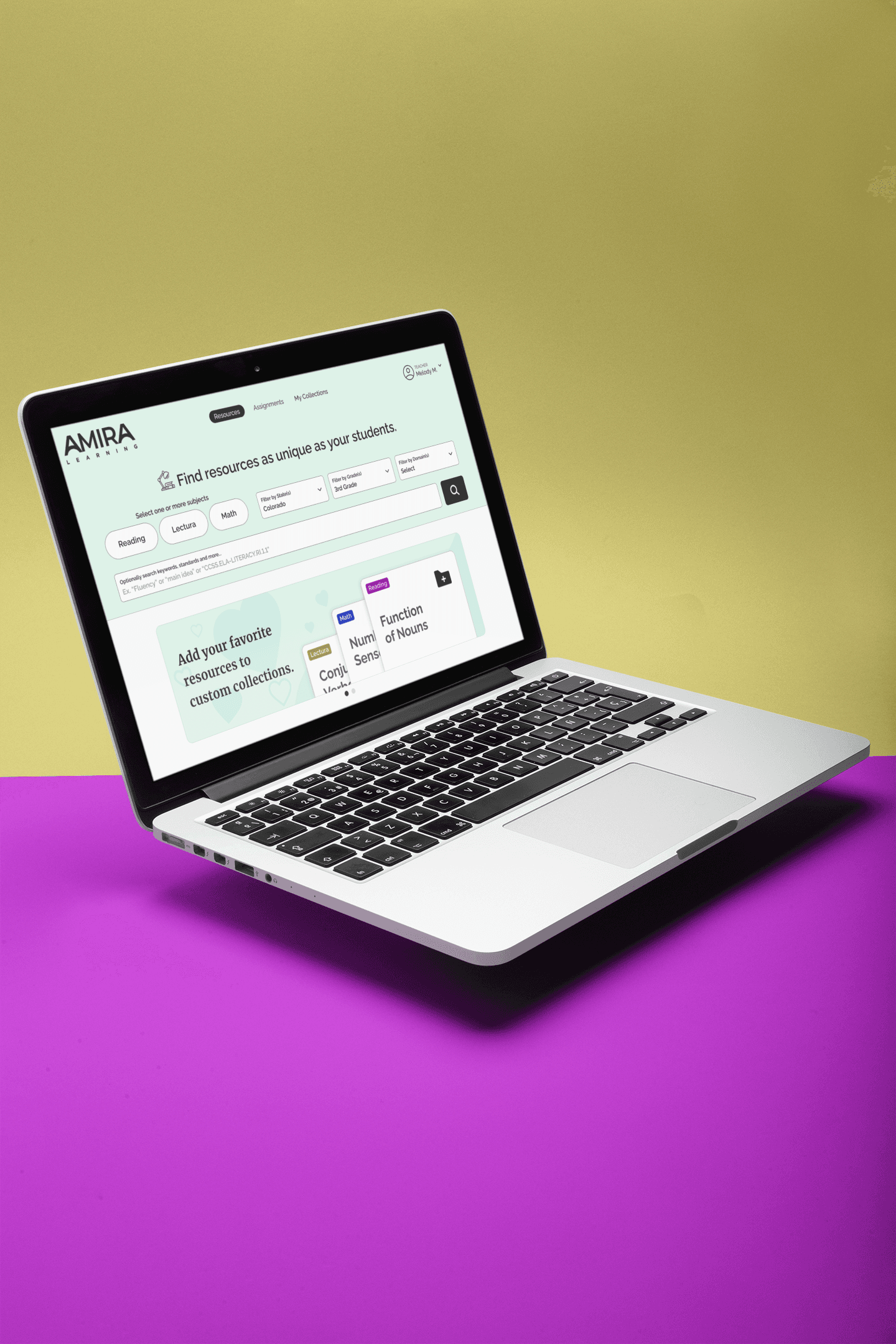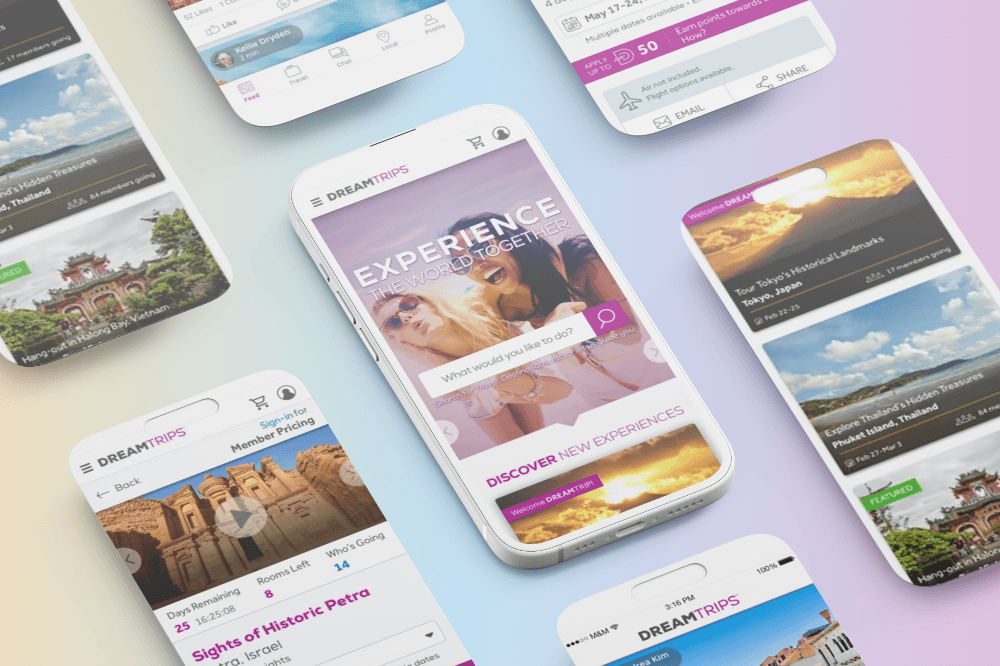From Data Overload to Revenue Growth: How We Made AI Work for Property Managers
I designed a revenue forecasting tool for a property management platform to help customers project quarterly revenue and uncover opportunities to boost both revenue and occupancy rates.
Sector
Property Management
Results
Customers saw amenity revenues increase by up to 62% following the design improvements
My Role
• Lead Designer • Supported Researchers • Design System Contributor
From Data Overload to Revenue Growth: How We Made AI Work for Property Managers
The Challenge: "We Trust Your Data, Now Tell Us What to Do With It"
Property managers had a problem. They were drowning in data but thirsty for guidance. While they trusted RealPage's extensive dataset, they spent hours analyzing numbers across amenities, credit scores, and marketing spend, trying to make optimal pricing decisions. As one property manager told us:
"We know the data is valuable, but we need you to tell us what to do with it. What decisions should we make today to maximize our revenue in the coming months?"
As Lead Designer at RealPage, I was tasked with transforming our trusted data platform into an actionable forecasting tool that would guide property managers to make confident, revenue-maximizing decisions.
Understanding the Human Side of Property Management
To truly understand how property managers make pricing decisions, we went beyond standard research methods:
Deep in the Field
- Spent full days observing property managers and leasing agents in their natural environment
- Shadowed their decision-making process during peak leasing seasons
- Documented their current workflows and pain points
Key Insights
1. Trust Wasn't the Issue: Property managers deeply trusted our data, but needed help interpreting it
2. Time Horizon Matters: 12 weeks was the sweet spot for meaningful forecasting
3. Multiple Levers: Managers needed to balance various factors (credit scores, marketing spend, amenity pricing) to maintain occupancy goals
4. Risk vs. Reward: Different properties had different risk tolerances that affected their decision-making
The Big Opportunity: Empowering Confident Decisions
Our research revealed a crucial insight: property managers didn't just want predictions – they wanted the power to explore different scenarios and understand their impact. This led to our core design principle: "Make data actionable through interactive forecasting."
The Solution: Interactive Revenue Forecasting
Working closely with our data science team, C-level executives, and product managers, I designed a revolutionary forecasting tool that put control back in the hands of property managers.
Key Features
1. Interactive Control Center
- Custom "recommendation dials" for different variables
- Real-time revenue impact visualization
- 12-week forward-looking forecast
2. Risk-Aware Recommendations
- AI-powered suggestions based on historical data
- Ability to override recommendations based on local knowledge
- Clear visualization of trade-offs between different decisions
3. Scenario Planning
- "What-if" analysis for different strategies
- Impact visualization across key metrics
- Easy comparison between scenarios
The Design Process: Collaboration at Scale
As Lead Designer, I:
- Orchestrated workshops with C-level stakeholders to align on vision
- Mentored junior designers in creating user-centered solutions
- Partnered with our design system team to ensure consistency
- Led iterative prototyping sessions with users
- Facilitated cross-functional collaboration between data science and product teams
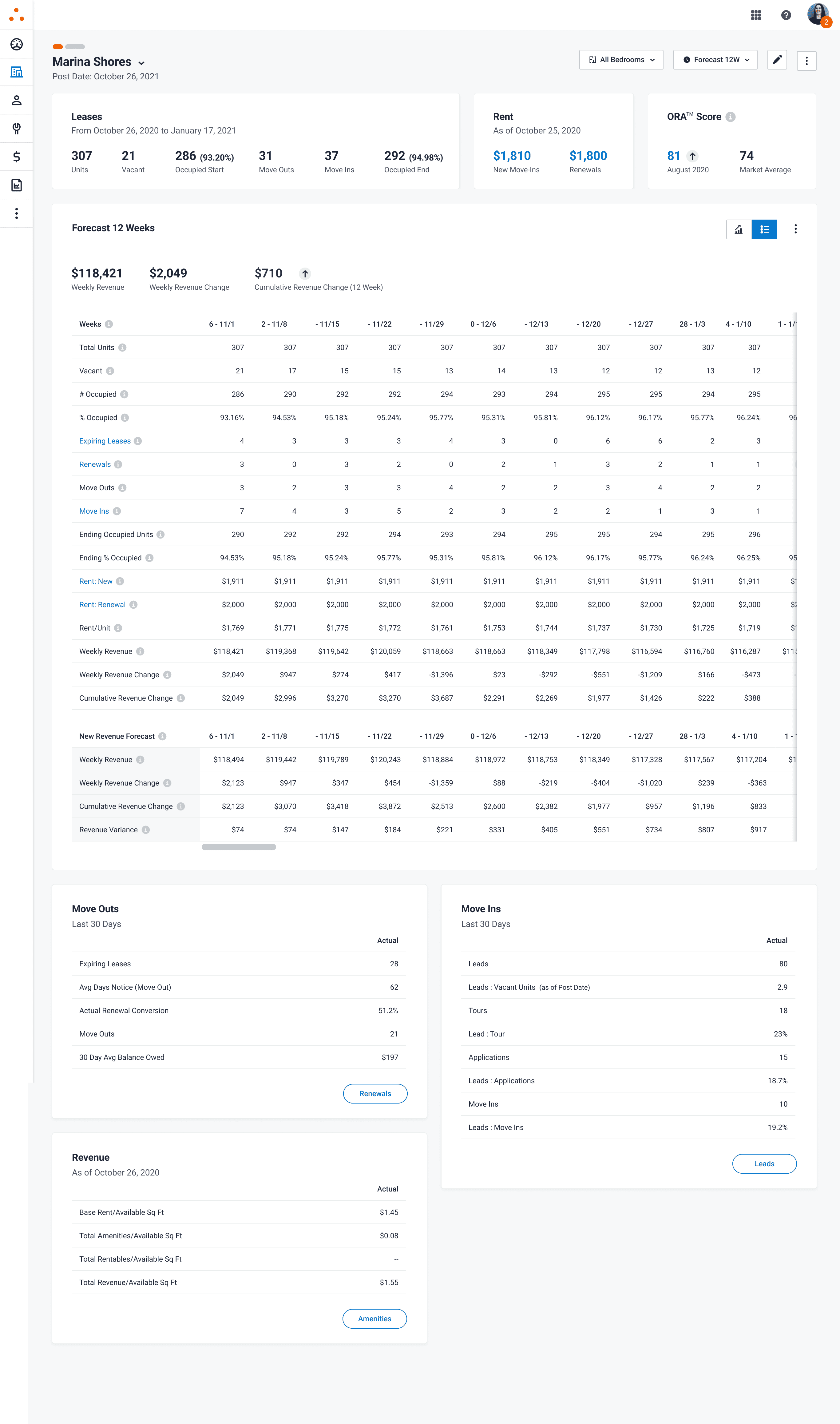
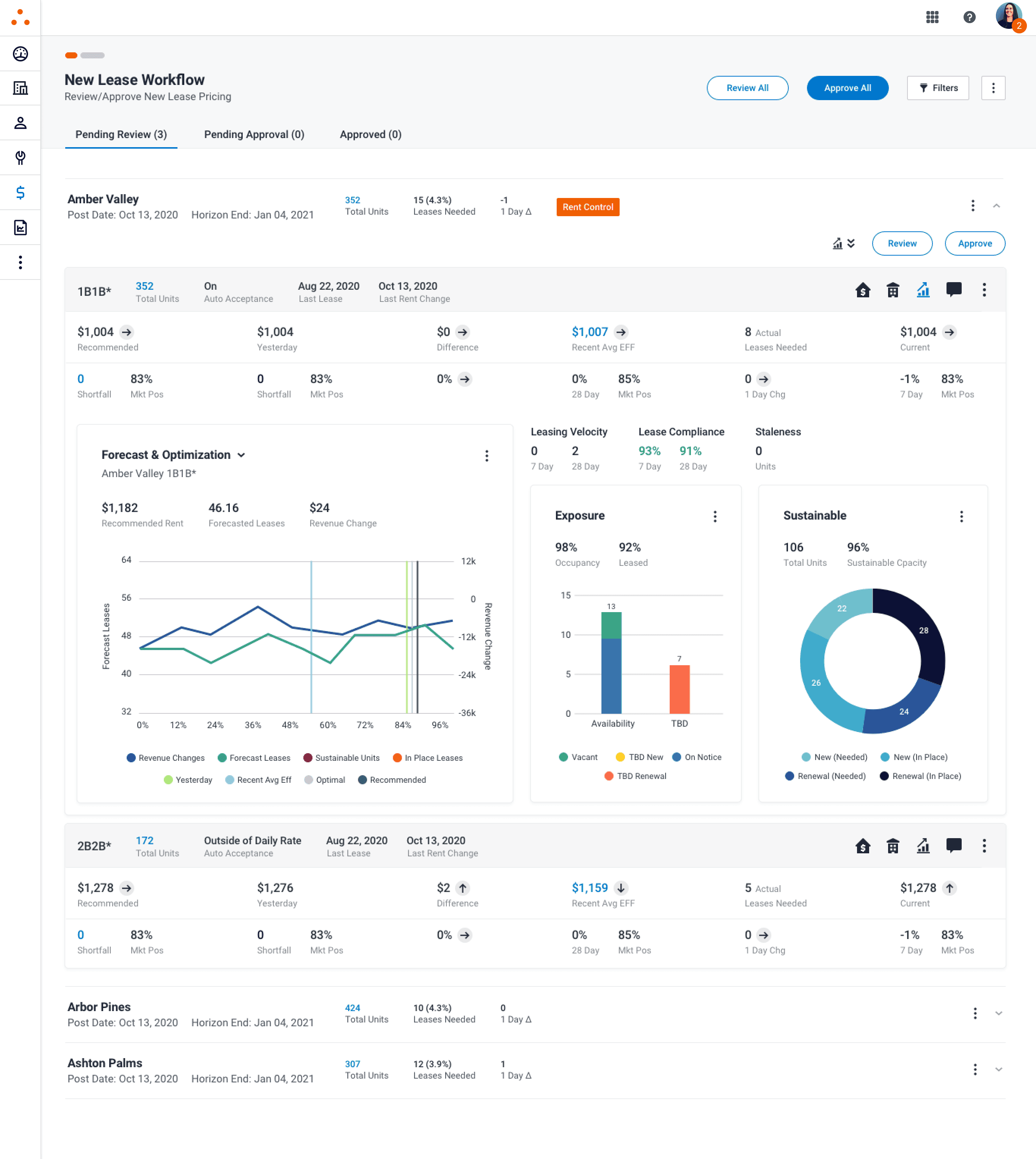
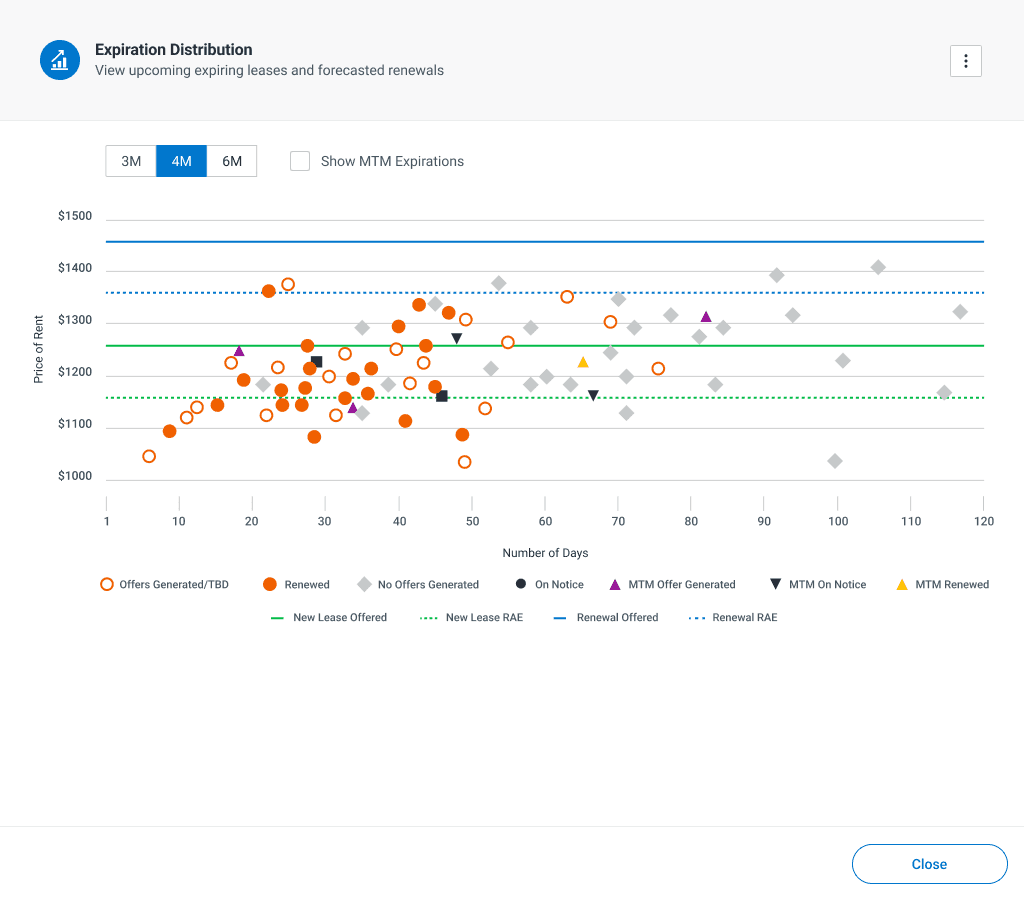
The Impact: Numbers That Tell a Story
The results exceeded all expectations:
- $1 Million in new revenue within first 3 months
- 62% increase in revenues from amenities for customers using AI-powered recommendations
- Accelerated migration from legacy platform as customers sought access to the new forecasting capabilities
- Successful sunset of outdated platform
Key Learnings
What Worked Well
1. Deep field research revealed crucial insights about decision-making processes
2. Close collaboration with data science team ensured recommendations were both accurate and actionable
3. Interactive prototyping helped refine the interface before full development
Future Opportunities
1. Expand forecasting to additional property management metrics
2. Develop more granular controls for different property types
3. Incorporate more machine learning capabilities for even more precise recommendations
The Bigger Picture
This project wasn't just about building a forecasting tool – it was about transforming how property managers make decisions. By bridging the gap between data and action, we helped properties increase revenue while reducing the cognitive load on managers.
The success of this project demonstrated that when you combine powerful data with thoughtful, human-centered design, you can create tools that don't just predict the future – they help users shape it.
MORE PROJECTS

